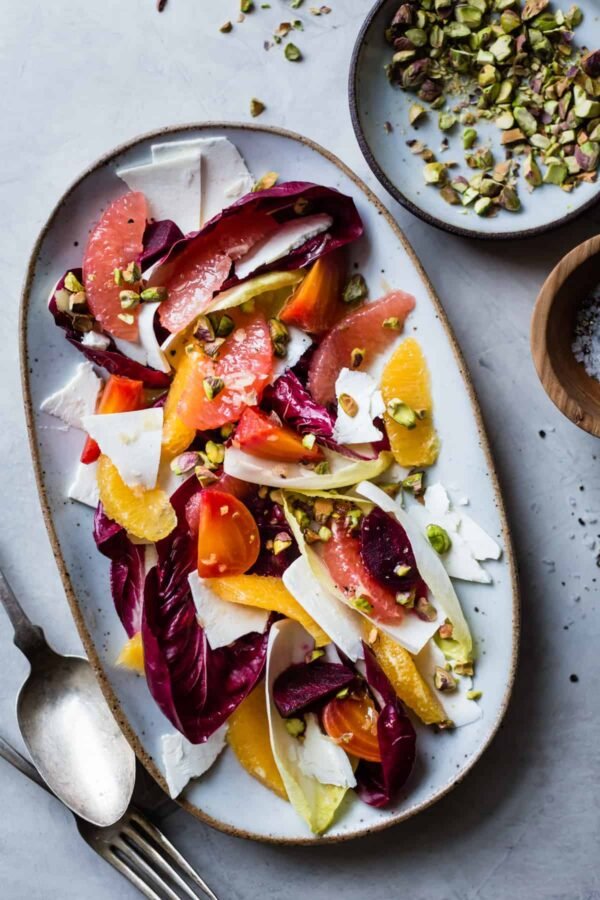
10 Ways To Stop Over Indulging This Christmas

Christmas is a time to get together with family and friends, have a good-old catch-up and enjoy all the party season has to offer. However for those trying to manage their weight and follow a healthy eating plan, it may feel impossible to avoid the barrage of Christmas food and drink on offer at every given opportunity!
Whilst it’s great to fill up your social calendar with events throughout the winter period, it also makes it harder to avoid over-indulging on the festive food and drinks. Often, you can end up feeling sluggish, drained, bloated and heavy-headed.
Here, we teamed up with Nutritional Therapist Claire Barnes over at Lepicol, to give you her ten top tips to help you resist the temptation to over-indulge and instead feel more energised to enjoy the party season.
1. And relax…
So, the year is coming to an end, and for most of us by the time it gets to December, we’re feeling like we deserve a little treat. Why not! Unfortunately many of us have been engrained to think that chocolate or sweets are a way of ‘treating’ ourselves. Instead of reaching for the processed sugar-laden mince pies, give your body a proper treat, and book yourself in for a massage, reiki or a mindfulness session. Remember your body is your temple!
2. Freshen up
Get yourself outside as often as possible. It may look dreary and cold outside, but just getting yourself out in the open air and moving around will help to increase feel-good endorphins. Any sort of outdoor exercise, whether a brisk walk or a more energetic cycle ride, will help regulate your appetite by temporarily suppressing ghrelin (our hunger hormone) as well as boosting your mood and reducing your risk of stress.
3. Don’t deny it
Don’t deny yourself a little of what you fancy. If you crave a sweet treat, opt for dark chocolate (at least 70%) and don’t feel guilty for adding that dollop of double cream, eating fat can improve your absorption of fat soluble vitamins (vitamin A, D, E and K), as well as helping you feel fuller quicker, meaning you’ll be less likely to want seconds!
4. Get cooking
Try to find some time to make your own Christmas recipes and perhaps share them with colleagues or friends. By making your own food from scratch, you have the opportunity to reduce the sugar content, and switch to healthier ingredients such as wholegrain flour. Perhaps even conceal a few veggies at the same time, such as beetroot brownies or sweet potato cinnamon rolls.
5. Stock-up
When it comes to the Christmas meal, don’t scrimp on the gravy. Think ahead and prepare your gravy in advance using a homemade bone broth. It’s so simple to make, will liven up your gravy as well as provide some extra nourishment for your body and skin. Just drop the bones from a joint of meat, a roast chicken or a whole fish into a slow cooker, add some vegetables and herbs, then cover with boiled water and cook for 48 hours. As our bodies absorb the nutrients they require through eating nutritious meals, we’re less likely to crave snacks between meals.
6. Comfort eating
Fill yourself up on hearty warm soups and stews. Aim to get at least seven portions of vegetables per day. A nutritious soup laden with vegetables and pulses should keep you filled up all evening, leaving you little or no room to over-indulge on any brightly coloured foil wrapped chocolates that are often handed around at this time of year!
7. Ain’t no sunshine
Evidence suggests that we should all be taking a vitamin D supplement throughout the winter season as our bodies are not able to synthesise enough vitamin D from the sun from October to April in the northern hemisphere. Vitamin D in the body allows us to produce other hormones such as serotonin (often called our happy hormone), when we feel good from the inside, we’re less likely to look for a sweet indulgence as a pick-me-up.
8. Like clockwork
Your body clock should naturally adapt to the shorter winter days, but try to keep it in check by eating meals at a similar time each day and go to bed and wake-up at the same time. When inevitably you do have a late night over the festive season, try to get back in check the next day by sticking to regular meal times, rather than snacking, keep the body hydrated and get back to a normal sleep pattern.
9. Get a helping hand
One solution to help prevent over indulgence is to take a supplement, such as Lepicol Lighter (£17.99 from www.lepicol.com) . This award winning high fibre product contains 7 strains of live bacteria (probiotics), chromium for the maintenance of normal blood glucose levels, glucomannan, a plant fibre which contributes to weight loss in the context of an energy restricted diet and psyllium husk, which contributes to maintaining normal bowel transit. Taken before meals, it may help prevent overeating and reduce cravings.
10. Eat Mindfully
Christmas time is a great excuse to take a break from computer screens and smart phones and gather round the dinner table, where you can really focus on the food you are eating. Without distractions your brain is better able to pick up signals of when you are full, meaning you’re less likely to over eat. Chewing your food well, putting down your cutlery between mouthfuls and really savouring the flavours will also help with this.












































